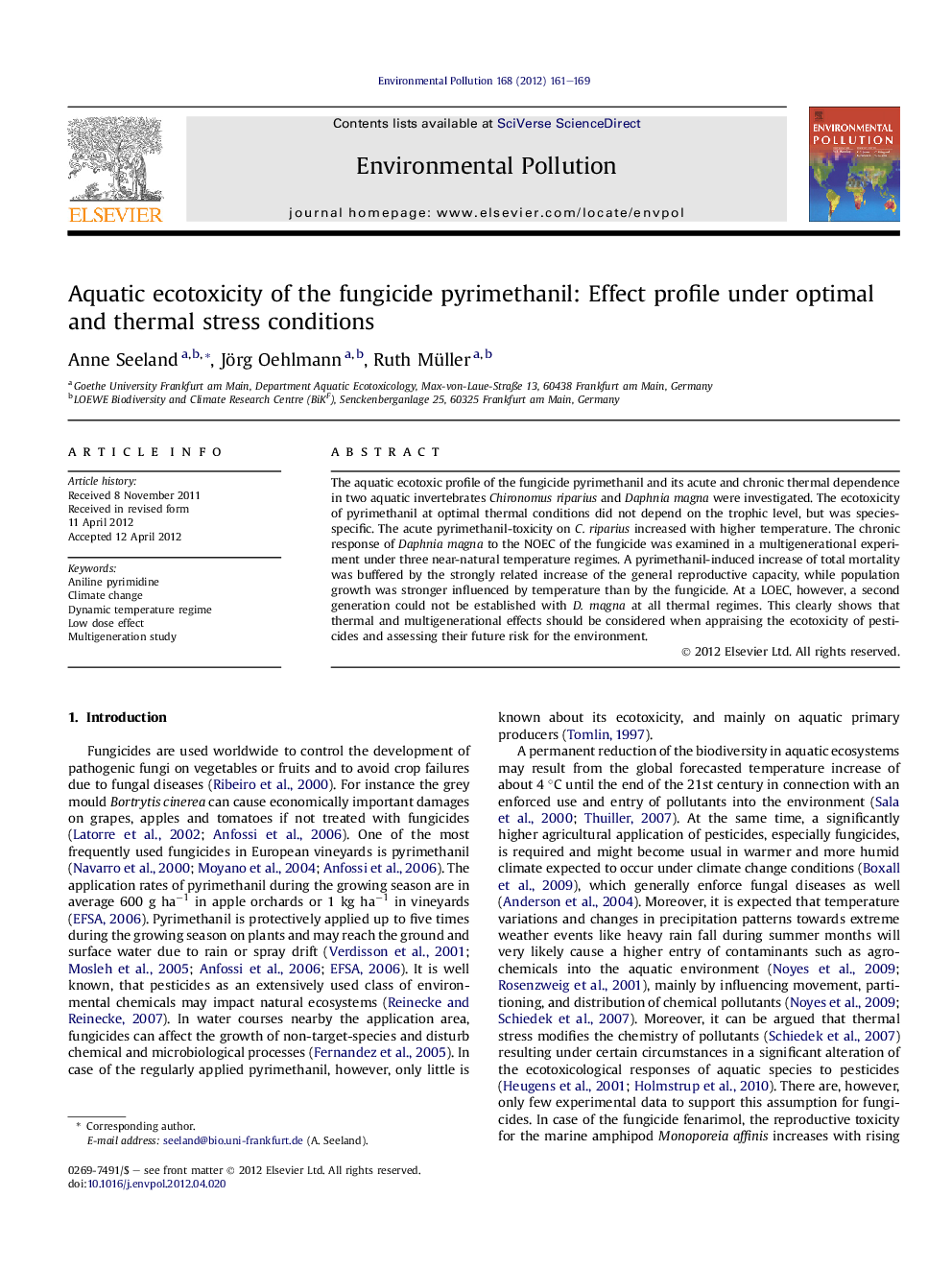| Article ID | Journal | Published Year | Pages | File Type |
|---|---|---|---|---|
| 6318852 | Environmental Pollution | 2012 | 9 Pages |
The aquatic ecotoxic profile of the fungicide pyrimethanil and its acute and chronic thermal dependence in two aquatic invertebrates Chironomus riparius and Daphnia magna were investigated. The ecotoxicity of pyrimethanil at optimal thermal conditions did not depend on the trophic level, but was species-specific. The acute pyrimethanil-toxicity on C. riparius increased with higher temperature. The chronic response of Daphnia magna to the NOEC of the fungicide was examined in a multigenerational experiment under three near-natural temperature regimes. A pyrimethanil-induced increase of total mortality was buffered by the strongly related increase of the general reproductive capacity, while population growth was stronger influenced by temperature than by the fungicide. At a LOEC, however, a second generation could not be established with D. magna at all thermal regimes. This clearly shows that thermal and multigenerational effects should be considered when appraising the ecotoxicity of pesticides and assessing their future risk for the environment.
⺠The aquatic ecotoxicity of pyrimethanil does not depend on trophic levels. ⺠Acute and chronic pyrimethanil ecotoxicity increases with increasing temperature. ⺠Pyrimethanil effects under thermal stress could not be deduced from standard tests.
